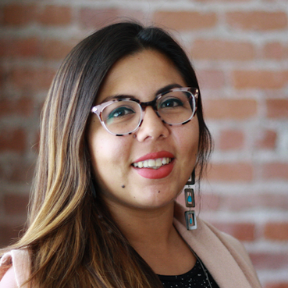 We need to make intentional power shifts within our organizations to promote emerging BIPOC leaders. Those leaders are probably in your office right now. And that power shift can be initiated by every manager becoming an advocate for their staff’s career advancement.
We need to make intentional power shifts within our organizations to promote emerging BIPOC leaders. Those leaders are probably in your office right now. And that power shift can be initiated by every manager becoming an advocate for their staff’s career advancement.
Essay Archives
The 40-hour work week is more harmful than helpful. Here’s what to do instead
 Why are we still forcing ourselves to work an 8 hour day? How can we better manage employee workloads? And how do we better assess employee performance in order to prevent employee burnout?
Why are we still forcing ourselves to work an 8 hour day? How can we better manage employee workloads? And how do we better assess employee performance in order to prevent employee burnout?
White-focused philanthropy is on the way out; a philanthropy that unites us is taking over
 Recently, USA Today published an opinion piece titled People-focused philanthropy is on the way out. A philanthropy that divides is taking over, by Elise Westhoff. The basic premise of this article casts a critical eye toward the recent national conversation about community, equity, race, and justice. It suggests that holding space for philanthropy to refresh or reinvent itself in response to current events — or for philanthropy to acknowledge how systems, policy or politics — has had a disparate impact on groups of individuals and causes harm to the donors themselves.
Recently, USA Today published an opinion piece titled People-focused philanthropy is on the way out. A philanthropy that divides is taking over, by Elise Westhoff. The basic premise of this article casts a critical eye toward the recent national conversation about community, equity, race, and justice. It suggests that holding space for philanthropy to refresh or reinvent itself in response to current events — or for philanthropy to acknowledge how systems, policy or politics — has had a disparate impact on groups of individuals and causes harm to the donors themselves.
Silence is complicity: What is unsaid speaks volumes
 Welcome to the social profit/nonprofit sector. You know, the good sector, the one that has long basked in its reputation of doing good work. It’s an inherent goodness that is unquestionably bestowed upon it.
Welcome to the social profit/nonprofit sector. You know, the good sector, the one that has long basked in its reputation of doing good work. It’s an inherent goodness that is unquestionably bestowed upon it.
However, for far too long Black, Indigenous, and People of Colour have absorbed all that the sector has on offer — the good, the bad, and the downright harmful and reprehensible.
And their stories are disturbing.
Three times trying a community-centric approach paid off
 In mid-February, I sat in a development committee meeting. Like most meetings I attend, I was the only non-white, non-cis person in the room, sitting on mute, listening to an all-white, all-cis group share their ideas for how we could monetize an educational week of events.
In mid-February, I sat in a development committee meeting. Like most meetings I attend, I was the only non-white, non-cis person in the room, sitting on mute, listening to an all-white, all-cis group share their ideas for how we could monetize an educational week of events.
I’m an executive director who has worked for free for nearly 10 years. Is it still even worth it?
 Eight years ago, I had an idea. The idea was inspired by what I had seen at other organizations around the country, but for where I resided, in Central Virginia, it was a new thing. After about a year of testing this idea out and playing with it in a real-world sense, I decided to commit to seeing it come to fruition. I would end up spending so much of my time — without compensation, mind you — working relentlessly, because I believed in it.
Eight years ago, I had an idea. The idea was inspired by what I had seen at other organizations around the country, but for where I resided, in Central Virginia, it was a new thing. After about a year of testing this idea out and playing with it in a real-world sense, I decided to commit to seeing it come to fruition. I would end up spending so much of my time — without compensation, mind you — working relentlessly, because I believed in it.
The fact-based fallacy of accountability to donors
 There are so many reasons the notion of accountability to donors is not only misplaced but factually illogical. I’m not talking about the significant ethical reasons that have been covered so well in racial equity and social justice forums. I’m talking about logic-based, fact-based arguments. Because once we begin down the logic trail, the entire donor-centric model of accountability begins to crumble on its own.
There are so many reasons the notion of accountability to donors is not only misplaced but factually illogical. I’m not talking about the significant ethical reasons that have been covered so well in racial equity and social justice forums. I’m talking about logic-based, fact-based arguments. Because once we begin down the logic trail, the entire donor-centric model of accountability begins to crumble on its own.
That time an ‘equity office’ made me grasp how mandatory DEI training harms the most oppressed
By Krystal Kavita Jagoo, MSW, RSW
 Some know my employer as “a globally top-ranked public research university in Toronto” but having survived employment there since 2018, I know it as Jordan Peterson’s stomping grounds.
Some know my employer as “a globally top-ranked public research university in Toronto” but having survived employment there since 2018, I know it as Jordan Peterson’s stomping grounds.
Focusing on fundraising goals is harmful — let’s measure love instead
 In the beginning of 2020, before the pandemic, Oregon Food Bank (OFB) said goodbye to financial goals. (Not entirely, of course — resource development is still an important strategy for ending hunger and its root causes, after all.) To be more accurate, what we said goodbye to were financial goals as a driver of decision-making and as a measurement of staff performance.
In the beginning of 2020, before the pandemic, Oregon Food Bank (OFB) said goodbye to financial goals. (Not entirely, of course — resource development is still an important strategy for ending hunger and its root causes, after all.) To be more accurate, what we said goodbye to were financial goals as a driver of decision-making and as a measurement of staff performance.
Are universities REALLY ready to take on antiracism? An Open Letter to UT Austin
By Marcus Cunningham and Michelle Flores Vryn, CFRE
 Focusing on social justice and equity in philanthropy sounds like it should not be a new concept. Most people have dropped money into their church’s collection plate or bought a box (or three) of Girl Scout cookies. Philanthropy is all about charity and compassion, right?
Focusing on social justice and equity in philanthropy sounds like it should not be a new concept. Most people have dropped money into their church’s collection plate or bought a box (or three) of Girl Scout cookies. Philanthropy is all about charity and compassion, right?
In reality though, charity and compassion are actually contrary to the way many powerful institutions operate.
Take the recent example of The University of Texas at Austin’s response to open records requests on donor responses to changing the Eyes of Texas school song, a tradition that perpetuates racist origins.
So you think you’re a philanthropist, huh? Or maybe you’re a power hoarder? Let’s find out!
 Hi! This is a message from your friendly, eager-to-please nonprofit fundraiser. All of us got together, and I drew the short straw … and I now have the task of telling you the whole truth and nothing but the truth. I have been summoned to pull back the curtain and reveal everything. Everything we want you to know — but are afraid to say — about philanthropy.
Hi! This is a message from your friendly, eager-to-please nonprofit fundraiser. All of us got together, and I drew the short straw … and I now have the task of telling you the whole truth and nothing but the truth. I have been summoned to pull back the curtain and reveal everything. Everything we want you to know — but are afraid to say — about philanthropy.
First and foremost, if you are currently giving money to a nonprofit organization, we want to genuinely thank you. Without funding, it is difficult, and — in most cases — impossible to do the work that needs doing. We understand that donors like you give for all kinds of reasons, and the choice to share your money is admirable. You could be spending all of your money on the latest iPhone, saving it all for your offspring, or buying a yacht. (I imagine that most of us fall within the first or second scenario, but still – we are all making a choice.)
It’s pronounced ‘zeen’! (How the world of zines inadvertently prepared me for a career in nonprofit fundraising)
 Zines are usually categorized as ephemera, something that exists only briefly or for a short period of time.
Zines are usually categorized as ephemera, something that exists only briefly or for a short period of time.
Zines are pronounced zeen, short for magazine, and are self-published, not widely distributed, and cost very little. As small and temporary as they initially seem, zines have actually been around for decades and can have the power to provide a voice to those who are not normally heard.
